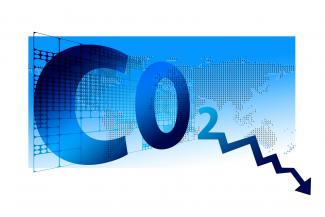Co-sponsored by NETL, the 7th International Supercritical CO2 Power Cycles Symposium kicked off in San Antonio, Texas today, presenting an opportunity for the Lab to network with partners and describe its work advancing supercritical carbon dioxide (sCO2) power cycle technologies that can enable carbon capture while generating power.
The Symposium is a technical meeting to unite industry, academia and government agencies to advance supercritical carbon dioxide power cycle technology. The goal of the symposium is to create a network of expertise and technical understanding in the field. The theme of this year’s event is “Advancing Supercritical Carbon Dioxide Power Cycles from the Laboratory to Large-Scale Operation.”
“With the push to decarbonize the economy and power sector, it’s more important than ever to organize events like this to share the latest practices and developments,” explained Richard Dennis, technology manager of NETL’s Supercritical Carbon Dioxide Power Cycle program and co-chair of the Symposium. “The nature of sCO2 power systems can aid in the carbon capture processes to produce hydrogen power using our country’s energy resources in a sustainable manner. NETL is proud to be a co-sponsor of this important gathering.”
Among the NETL and U.S. Department of Energy projects to be detailed during the Symposium is the Supercritical Transformational Electric Power (STEP) program. The mission of STEP is the design, construction and operation of a 10-megawatt (MWe) pilot scale facility using an indirect-fired supercritical CO2 power cycle over a range of operating conditions and show progress toward a lower cost of electricity. By reducing operating costs and power consumption, the technology will be much more attractive to private sector investors.
The STEP facility will serve as an opportunity for industry and government to work together to develop and mature the technology at the pilot-scale to facilitate commercialization. The investment will spur the development of designs, materials, components, operation and control systems and sensors. The project will also advance understanding and characterization needed for commercial acceptance of large scale sCO2 power cycles. Where appropriate the facility will be used to address and resolve technology-specific issues relevant to the different heat source applications.
Design considerations for the 10 MWe sCO2 Power Plant STEP were detailed during the Symposium. Other NETL research project papers scheduled for presentation during the event include:
• Dynamic Modeling and Simulation of a Large Scale Direct-Fired Supercritical CO2 Power Cycle for Off-Design Operating Conditions by Anderson Chinen.
• Radial Compressor Design and Off-Design for Transcritical CO2 Operating Conditions by Selcuk Can Uysal.
• Mechanical Degradation of Ferritic/Martensitic and Austenitic steels in CO2 Environment by Kyle Rozman.
• Identifying Cost-Effective Steels for Direct-Fired sCO2 Power Cycles by research scientist Richard Oleksak.
• A Performance and Economic Comparison of Partial Cooling and Recompression sCO2 Cycles for Coal-Fueled Power Generation by Sandeep Pidaparti.
• Cooling System Cost and Performance Models to Minimize Cost of Electricity of a Direct sCO2 Power Plants by Sandeep Pidaparti.
Supercritical CO2 power cycles operate similar to other turbine cycles, but use CO2 as the working fluid in the turbomachinery. The cycle is operated above the critical point of CO2 so that it does not change phases. Instead, it undergoes drastic density changes over small ranges of temperature and pressure.
Supercritical CO2-based power cycles have shown the potential for increased heat-to-electricity conversion efficiencies, high power density, and simplicity of operation compared to existing steam-based power cycles. The sCO2 power cycle utilizes small turbomachinery, is fuel- and/or heat-source neutral, and efficient. The direct-fired version of the sCO2 cycle can facilitate carbon capture by producing a high purity stream of carbon dioxide that is ready for use/reuse or storage.
NETL is a U.S. Department of Energy national laboratory that drives innovation and delivers technological solutions for an environmentally sustainable and prosperous energy future. By leveraging its world-class talent and research facilities, NETL is ensuring affordable, abundant and reliable energy that drives a robust economy and national security, while developing technologies to manage carbon across the full life cycle, enabling environmental sustainability for all Americans.




